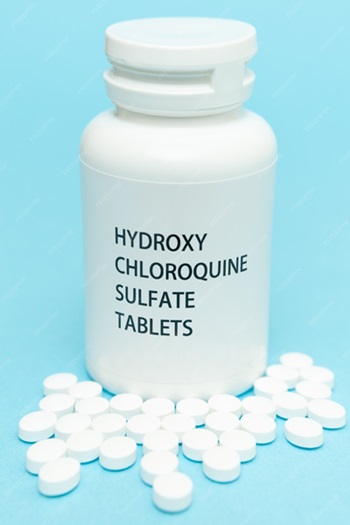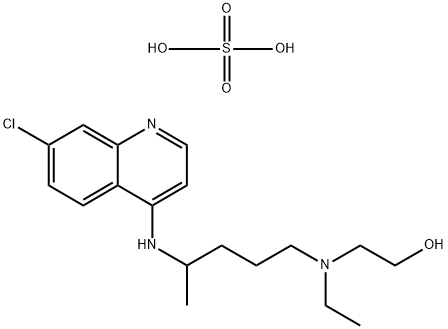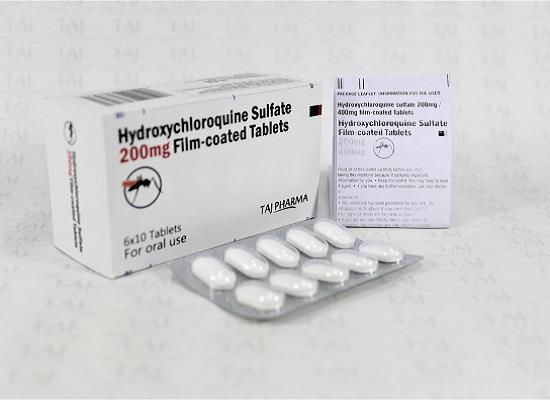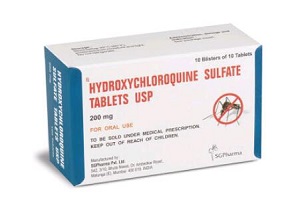The mechanism of action and precautions of Hydroxychloroquine sulfate
General description
Hydroxychloroquine sulfate, a derivative of chloroquine, has been a cornerstone in the treatment of malaria and autoimmune diseases such as rheumatoid arthritis (RA) and systemic lupus erythematosus (SLE) for decades. Its efficacy, coupled with a relatively favorable safety profile, has made it a vital component in the therapeutic arsenal against these conditions[1].

Mechanism of Action
Hydroxychloroquine sulfate works by interfering with the communication of cells in the immune system. In autoimmune diseases like RA and SLE, the immune system mistakenly attacks the body's tissues, causing inflammation and damage. Hydroxychloroquine modulates the immune response, reducing inflammation and preventing the progression of these diseases. Its anti-malarial action is attributed to its ability to inhibit the digestion of hemoglobin by the malaria parasite, thereby killing it.
In rheumatoid arthritis, hydroxychloroquine is used to reduce pain, swelling, and joint stiffness. It is not a fast-acting drug but can lead to significant improvements in symptoms and quality of life over time. In systemic lupus erythematosus, it has been shown to decrease the risk of flares, protect against organ damage, and improve survival rates.
Benefits
The benefits of hydroxychloroquine sulfate are wide-ranging. For patients with autoimmune diseases, it offers a means to control symptoms, reduce the frequency of flare-ups, and maintain a more normal lifestyle. It is particularly valued for its ability to improve skin lesions, joint pain, and fatigue associated with SLE. In the context of malaria, hydroxychloroquine sulfate provides a critical therapeutic option, especially in areas where the parasites have developed resistance to other drugs.
Precautions
As the number of severe acute respiratory syndrome coronavirus 2 (SARS-COV-2) infected people is greatly increasing worldwide, the international medical situation becomes very serious. Potential therapeutic drugs, vaccine and stem cell replacement methods are emerging, so it is urgent to find specific therapeutic drugs and the best treatment regimens. After the publications on hydroxychloroquine (HCQ) with anti- SARS-COV-2 activity in vitro, a small, non-randomized, open-label clinical trial showed that HCQ treatment was significantly associated with reduced viral load in patients with coronavirus disease-19 (COVID-19). Meanwhile, a large prophylaxis study of HCQ sulfate for COVID-19 has been initiated in the United States. HCQ offered a promising efficacy in the treatment of COVID-19, but the optimal administration is still being explored.
We used the keyword "hydroxychloroquine" to conduct a literature search in PubMed to collect relevant literature on the mechanism of action of HCQ, its clinical efficacy and safety, pharmacokinetic characteristics, precautions for clinical use and drug interactions to extract and organize information.
The paper by Dongyang Liu et. al. reviews the mechanism, clinical efficacy and safety, pharmacokinetic characteristics, exposureresponse relationship and precautions and drug interactions of HCQ, and summarizes dosage recommendations for HCQ sulfate.
Conclusion: It has been proved that HCQ, which has an established safety profile, is effective against SARS-CoV-2 with sufficient pre-clinical rationale and evidence. Data from high-quality clinical trials are urgently needed worldwide.[2]
Conclusion
Hydroxychloroquine sulfate stands out for its utility in treating malaria and autoimmune diseases, offering significant benefits to those afflicted. However, the potential for side effects necessitates a cautious approach, emphasizing the importance of regular monitoring and adherence to prescribed guidelines. By doing so, patients can maximize the therapeutic benefits of hydroxychloroquine sulfate while minimizing risks, leading to improved health outcomes and quality of life. Collaboration between patients and healthcare providers is crucial in navigating the complexities of treatment, ensuring that hydroxychloroquine sulfate continues to be a valuable tool in managing these challenging conditions.
References
[1]Tanenbaum L, Tuffanelli D L. Antimalarial agents: chloroquine, hydroxychloroquine, and quinacrine[J]. Archives of dermatology, 1980, 116(5): 587-591.
[2] Cui C, Tu S, En V S J, et al. Review on the clinical pharmacology of hydroxychloroquine sulfate for the treatment of COVID-19[J]. Current Drug Metabolism, 2020, 21(6): 427-435.
Related articles And Qustion
See also
Lastest Price from Hydroxychloroquine sulfate manufacturers

US $0.00-0.00/Kg/Drum2025-04-21
- CAS:
- 747-36-4
- Min. Order:
- 1KG
- Purity:
- 98%-102%;USP
- Supply Ability:
- 500KG

US $45.00-26.00/kg2025-04-21
- CAS:
- 747-36-4
- Min. Order:
- 25kg
- Purity:
- 0.99
- Supply Ability:
- 20MT




